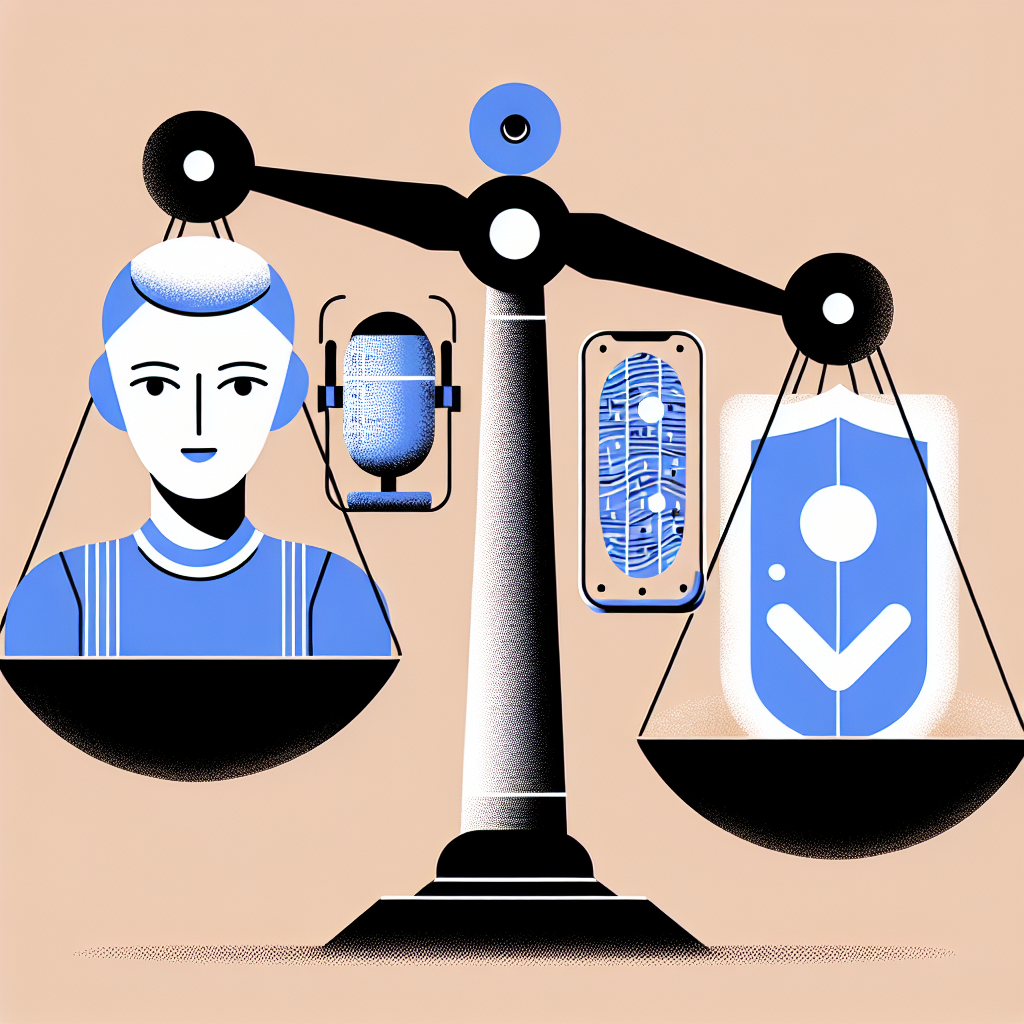In today’s digital age, we are constantly surrounded by technology that is designed to make our lives more convenient. From smartphones to smart home devices, we have access to a wide range of tools that can help us with everything from ordering groceries to controlling our home’s temperature.
One of the most popular technologies that has gained widespread adoption in recent years is AI assistants. These virtual assistants, such as Amazon’s Alexa, Apple’s Siri, and Google Assistant, are designed to help us perform a variety of tasks through voice commands. They can answer questions, set reminders, play music, and even control other smart devices in our homes.
While AI assistants have certainly made our lives more convenient, they have also raised concerns about privacy. As these devices are always listening for commands, there is a fear that they could be recording our conversations and sharing that data with third parties. This has led many people to question whether the convenience of AI assistants is worth sacrificing their privacy.
Balancing convenience and privacy in the age of AI assistants is a complex issue that requires careful consideration. On one hand, these devices can greatly improve our quality of life by streamlining tasks and providing helpful information. On the other hand, they have the potential to infringe on our privacy and expose us to security risks.
To navigate this dilemma, it is important to understand the capabilities and limitations of AI assistants, as well as the steps that can be taken to protect our privacy while still enjoying the convenience they offer.
Understanding AI Assistants
AI assistants are powered by artificial intelligence algorithms that enable them to understand and respond to human voice commands. These algorithms are constantly learning and improving, which allows the assistants to provide more accurate and personalized responses over time.
AI assistants are designed to be always listening for a wake word, such as “Alexa” or “Hey Google,” that triggers them to start recording a command. Once the wake word is detected, the assistant will record the command and process it in the cloud to generate a response.
While this process is necessary for the assistants to function properly, it has raised concerns about privacy. Many people worry that their conversations are being recorded and stored by the devices, which could potentially be accessed by hackers or used for targeted advertising.
Protecting Your Privacy
To protect your privacy while using AI assistants, there are several steps you can take:
1. Review Privacy Settings: Most AI assistants come with privacy settings that allow you to control how your data is collected and used. Take the time to review these settings and adjust them to your comfort level.
2. Limit Data Sharing: Some AI assistants allow you to opt out of data sharing with third parties. If you are concerned about your data being shared with advertisers, make sure to disable this feature.
3. Use Voice Recognition: Some AI assistants offer voice recognition features that allow them to distinguish between different users. By setting up voice recognition, you can ensure that only authorized users can access your assistant.
4. Delete Voice Recordings: Many AI assistants allow you to delete your voice recordings on a regular basis. Make it a habit to regularly delete your recordings to minimize the amount of data that is stored by the device.
5. Be Mindful of Where You Place Your Device: Avoid placing your AI assistant in sensitive areas, such as bedrooms or bathrooms, where private conversations may occur.
By taking these steps, you can help protect your privacy while still enjoying the convenience of AI assistants.
FAQs
Q: Can AI assistants listen to my conversations without my permission?
A: AI assistants are designed to only start recording when they hear a wake word. However, there have been instances where the wake word was triggered accidentally, leading to unintended recordings. To minimize this risk, be mindful of where you place your device and review privacy settings regularly.
Q: Can AI assistants share my data with third parties?
A: Some AI assistants may share your data with third parties for advertising and marketing purposes. To prevent this, review privacy settings and opt out of data sharing if possible.
Q: Are AI assistants secure from hacking?
A: While AI assistants have security measures in place to protect your data, they are not immune to hacking. To minimize the risk of hacking, make sure to use strong, unique passwords for your accounts and regularly update your device’s software.
Q: Can AI assistants be used to spy on me?
A: AI assistants are designed to respect user privacy and only record commands after hearing a wake word. However, it is possible for malicious actors to exploit vulnerabilities in the system to spy on users. To protect yourself, be cautious of what you say around your AI assistant and review privacy settings regularly.
In conclusion, balancing convenience and privacy in the age of AI assistants requires careful consideration of the risks and benefits. By understanding how these devices work and taking steps to protect your privacy, you can enjoy the convenience of AI assistants without compromising your personal information.

